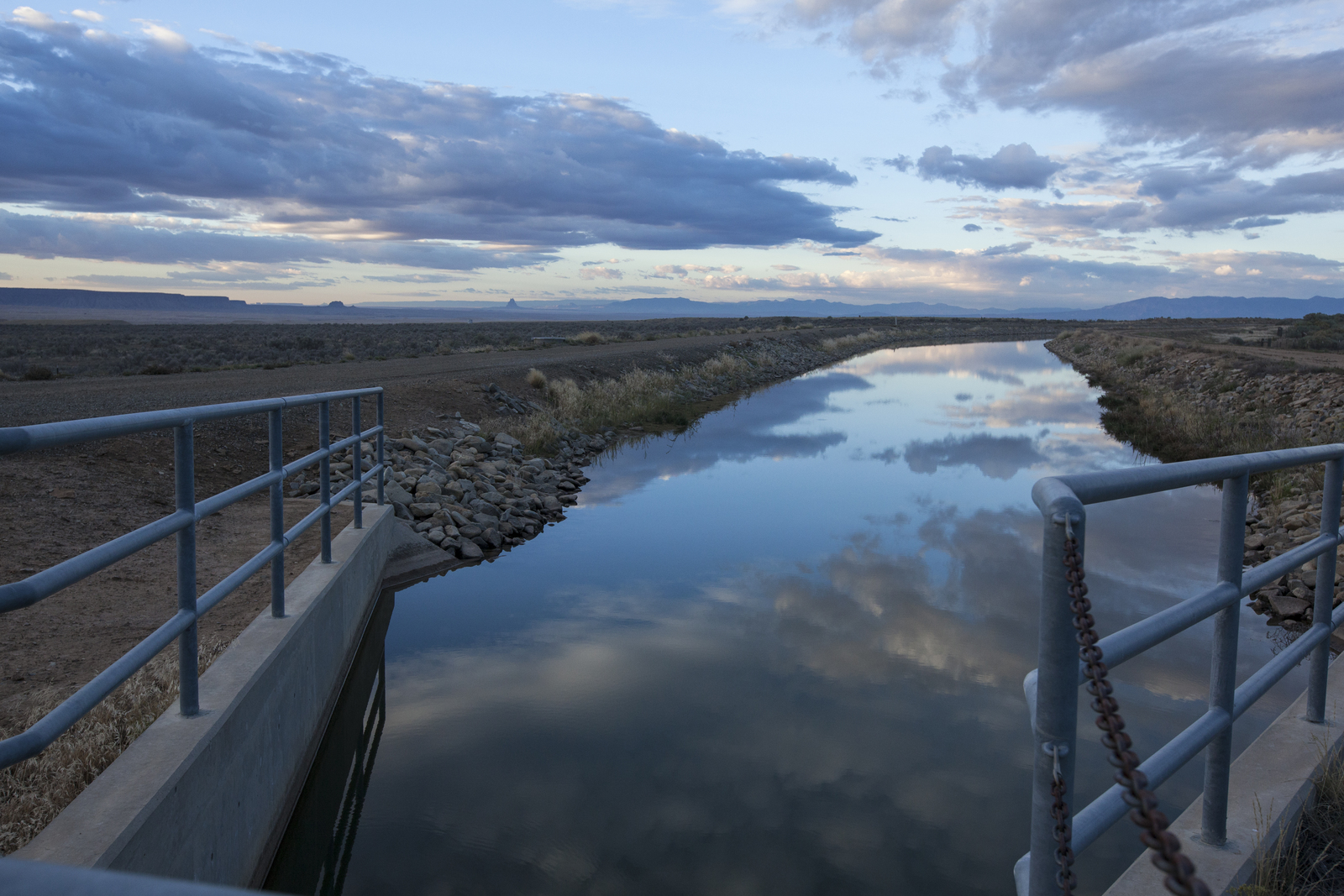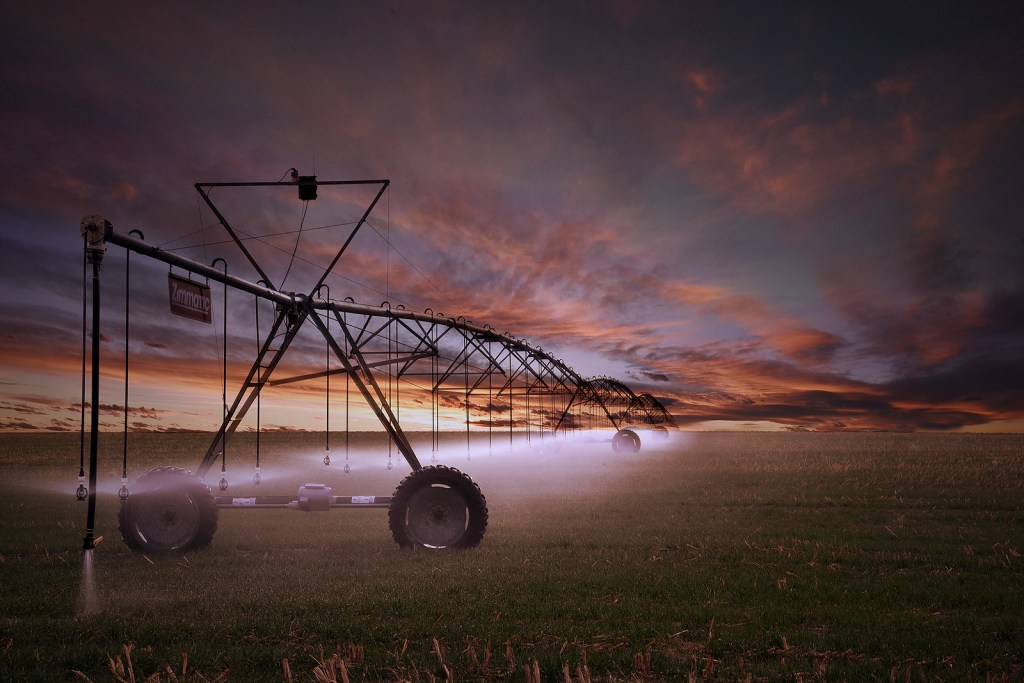Have you ever heard the one about climate change drying up the world and leaving the planet without enough water for us to live? New science shows that it’s actually not climate change causing the worst effects of water scarcity: it’s us. Primarily because we use a lot more water than natural processes replenish in water sources. Water (with a few exceptions) is a renewable resource, not an unlimited one.
What we find in our paper “Humans Drive Future Water Scarcity Changes Across All Shared Socioeconomic Pathways” (Environmental Research Letters), is that across a rich combination of climate and socioeconomic scenarios, climate change is not a dominant factor when compared to continued human activity.
By 2050, our projections show that over 70 percent of watersheds around the world will experience water scarcity driven by human activity, with a negligible proportion of water scarcity being affected by climate change.
The research explores changes in water scarcity taking place this century under a wide variety of potential climate and socioeconomic scenarios. We cover climate change severity from lower to higher, and human activity embedded in the Shared Socioeconomic Pathway scenarios that are now being included in the analyses conducted by the Intergovernmental Panel on Climate Change (IPCC).
Why This Matters and Why it Really Matters Now
I have been around long enough – I am not old, I prefer to think of myself as “vintage”– to have seen the “we’re running out of water” story unfold a few times over. Long before climate change became recognized as one of the world’s major problems, water scarcity was widely recognized as a challenge for humanity.

In my intellectual coming-of-age in the 1970s and 80s, issues like source protection, conservation, recycling, demand control, use efficiency and many other similar actions were front-and-center on the global water management agenda.
These issues recognized human activity as the core driver of the water problem. It was us, you and me, causing water scarcity in different parts of the world. It almost seemed to me that 30 years ago we were getting some traction at addressing the global water scarcity problem.
The Brundtland Report of 1987 (“Our Common Future”), frequently cited as the starting point for the global environmental movement, very clearly places the balance between water and human activity at the center of the sustainable development challenge. A decade later, the first World Water Forum would take place (Morocco, 1997) with the purpose of establishing a “Vision for Water, Life and the Environment.”
Then came climate change (and the term initially used to refer to it, global warming). Unfortunately, the rise of awareness about the challenges of climate change had a perverse result when it came to the world working collectively to reduce global water scarcity. The problem: the logic that climate change caused most water scarcity seemed so obvious – and I must confess, I bought into it, too.
The Challenge
This Climate Change = Water Scarcity rationale makes perfect sense. Increasing temperatures due to global warming would imply more and faster evaporation of water from Earth, and thus we would have less water to live with and to do all the sorts of things we do with water: drinking and domestic use, grow our food, produce our energy, and power our industries, among others.
But in retrospect, our focus on climate change has had the damaging, unintended side effect of diverting our attention from addressing the core of the water scarcity problem that has long been in front of our eyes: us.
Many of the issues causing water scarcity: overexploitation of sources, inefficient allocation, disconnect between supply and demand, have continued to deteriorate over the past few decades. Climate change is exacerbating a problem that was already dire. Extended periods of scarcity in places such as California and southeast Brazil, the water crisis in South Africa that led to the day-zero calling, and the contribution of water scarcity to the Arab Spring earlier this decade, are examples that continue to remind us that this problem isn’t going away; solutions are long overdue.
If it is Us Who Cause This, We Can Certainly Solve It…
There is some good news here. Since water scarcity is being caused primarily by human activity, it is precisely change to human activities what will effectively solve the water scarcity problem. In our paper, we show that proactive approaches can not only curb, but reduce water scarcity in more than half of the world’s watersheds.
Regardless of which climate change trajectory we may be in, it is high time to work on those measures that we know are needed: invest in protecting our water sources, increasing the efficiency with which we use water, managing water allocation and demand through appropriate incentives, and raise awareness of our individual and collective roles in curbing water scarcity everywhere.
…But Equipped with New Tools
We can’t go into battle using tools and approaches to solve the water scarcity problem that are dated and haven’t fully worked in the past. Working with a broad variety of stakeholders worldwide, TNC has worked over the past two decades to develop and promote nature-based solutions for water scarcity such as Water Funds and economic incentive measures, that are part of our broad applied conservation approach.
We continue to improve these tools, gathering evidence of how they are working, how to make them work better, bringing them to scale and continue to build the science and implementation partnerships that will transform the way we use water.
Water scarcity, conservation and climate change are complex problems, but the good news is that we aren’t dependent on solving the climate problem to solve the water problem.
Dr. Fernando Miralles-Wilhelm, TNC’s Lead Scientist for Global Water, is a hydrologist and water resources engineer with research interests in modeling of surface and groundwater systems, climate-hydrology-vegetation interactions, remote sensing applied to hydrologic cycle processes and water quality, and modeling of the water-energy-food nexus.




The water scarcity is going to the biggest issue in the coming decade. Like you said”By 2050, our projections show that over 70 percent of watersheds around the world will experience water scarcity driven by human activity, with a negligible proportion of water scarcity being affected by climate change”, It is going to happen very soon if we don’t react now and change the mistakes which we are doing. Saving water now, will save our future.